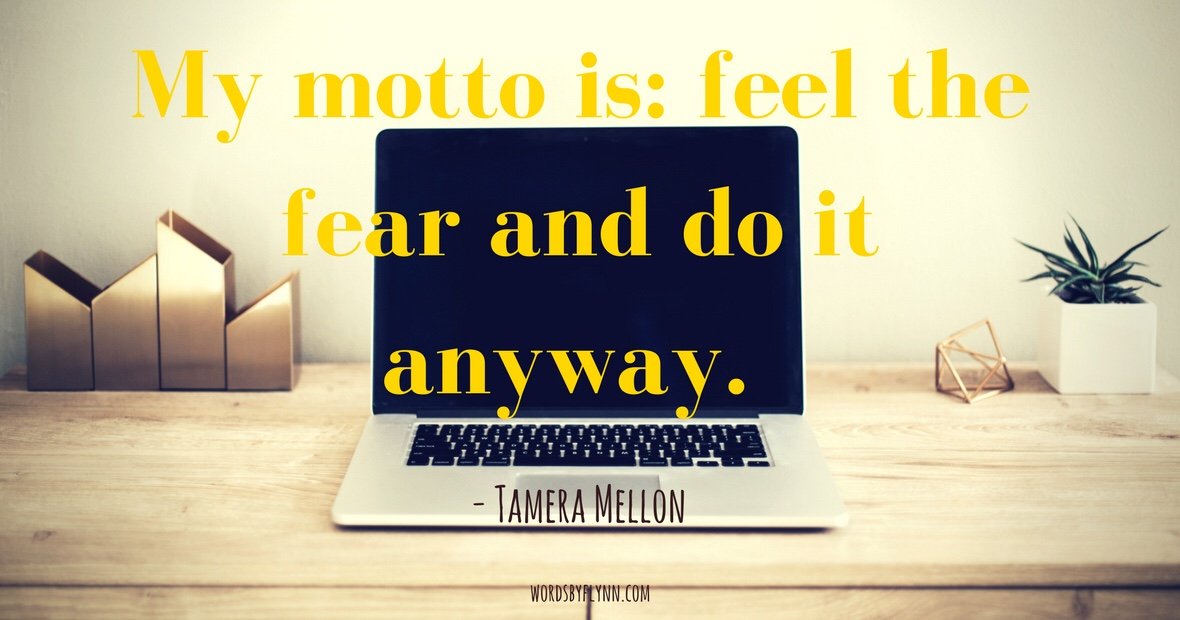Ways to know fear is holding you back
Fear. It can be one of may blocks in the road for writers when they start or finish a project. I began to struggle with this after coming back from vacation and missing my self-imposed deadline. I kept putting my morning writing off until the evening and then I would say I'm tired and head to bed.Anytime I did "try" and write, I kept distracting myself on the internet.Trying to think of ways to link your scenes together is as hard as looking at a blank page.But the other day I realized that it was just the fear and self-doubt keeping me from going back to what I enjoy. In the end, no matter where you are in your book, it comes down to your mindset. We, as writers, have ideas of how we want our books to turn out and it's disappointing when things don't turn out that way.I've been in this position before so it was hard to recognize that it was partly fear keeping me from sitting my butt in a chair. So, I've listed some ways to notice this and how to combat it so you can keep writing.
High expectations
When we sit down and write, we all think about the potential our books. It becomes scary when thoughts of self-doubt sneak in. You start to think that what you have is never good enough and you'll never be like your favorite author, as they are a benchmark of "success." Once the panic sets it, it's time to regroup your thoughts.
- Define what is success to you and what will you do if you don't achieve.
- If you haven't written anything down in a couple of days (or months), sit down at the computer and start writing something. Even is it's something new, or try writing prompts.
- Give yourself a break from the authors you follow. You'll spend less time comparing and more time writing.
Limitations
While I like to advocate the use of word count, for tracking purposes, sometimes it can be a hindrance and intimidating when you have to come up with X amount of words.
- If you feel like there is nothing more to add, stop—it's probably meant to end there.
- Rethink your word count goal—it's okay if you have to lower it. And if you keep going past it add a little more to your goal.
- Remember, especially if you're on the first draft, your words won't be the way you want them to be. You have to get it on the page so you can get them to near perfection.
Distractions
You're constantly checking your phone, emails, and social media hoping to take your mind off a daunting task--whatever it may be for your manuscript. And even starting research and stray to non-related work.
- Put your phone in the other room or on Do Not Disturb
- Give yourself a time limit to research, once that time is over turn off the internet
- If you want to go to the extreme, log out all of your social media accounts
And lastly:
Excuses
You're chalking up your inability to write to small things and letting it slide. Constantly.
- Try creating a writing group or joining one. They will hold you accountable.
- Set attainable goals. Start small with your goal. Don't forget put them on paper and put it somewhere you can see. Or create it as a background for screen.
- Playing the time card here: whether you feel like you don't have enough time, make time. Use planner to help keep track of that time.
 I'm not saying you should not feel fear, or any other emotion, while you write. It's a part of the process, but don't let it hold you back. If you're handling a big project, I've talked about some ways on how to handle it, just click here.Most importantly, what's left to say is to trust your own journey when it comes to writing. What you do will be different from the next writer.So keep writing.
I'm not saying you should not feel fear, or any other emotion, while you write. It's a part of the process, but don't let it hold you back. If you're handling a big project, I've talked about some ways on how to handle it, just click here.Most importantly, what's left to say is to trust your own journey when it comes to writing. What you do will be different from the next writer.So keep writing.